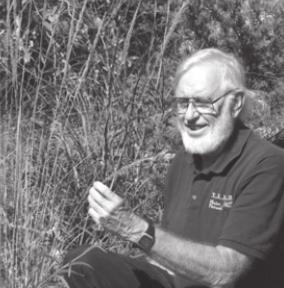Change Your Diet to Save the Planet?
The title probably reminds you of the old saying, "That's like spitting in the ocean."
A few weeks ago, I wrote a column listing the data Attenborough had summarized showing the world's population, the carbon in the atmosphere, and the percentage of wilderness area remaining from 1911 until 2020. I expect that everyone understood why Attenborough would include the data on the human population and also the amount of atmospheric carbon, but some may have wondered about the significance of the amount of remaining wilderness area.
It turns out that data which indicates what humans are doing/ have done to original rainforests and other natural areas with healthy vegetation is a very good indicator of our effect on the Earth's condition. Prior to humans, all of the Earth's vegetation was in a kind of equilibrium with the natural vegetative processes of death, decay and new growth, along with some being eaten by herbivores, which themselves were in equilibrium with carnivores.
But as the number of humans became greater and their presence more wide-spread, even if they were basically hunter-gatherers, they began to have an effect on the plant and animal numbers. And, obviously, from the numbers I cited above, we have had a significant effect on the amount of vegetation just in the last 100 years or so.
Some data from Attenborough may be instructive. "We currently cut down over 15 billion trees each year…The top driver of continuing deforestation, which doubles that of the next three greatest causes, is beef production. The second driver is soy, over 70 percent of which is used to feed livestock raised for meat. The third is oil palm production in Southeast Asia."
Some other examples: "96% of the mass of all mammals on Earth are made up of our bodies and those of the animals we raise to eat! Our own mass equals a third of the total. Our domestic animals (cows, pigs and sheep) make up 60%. The remainder, all wild animals from mice to elephants to whales, account for just 4%. "Half of the fertile land on earth is now farmed. 70% of the mass of birds on the earth are domesticated. We eat 50 billion chickens a year."
We have not cut down the rainforest to eat them!
We have cut them down to make room to either raise cattle directly, or most often, to raise crops to feed the animals we eventually eat.
Attenborough writes, "If 9 to 11 billion people are to live sustainably on the Earth, we will have to change the food we eat. What we eat will be more important than how much…The average person in the US eats 120 kg of meat each year, in Europe it is 60 kg, in Kenya it is 16 kg and in India it is 4 kg."
"Nearly 80% of farmland worldwide is used for meat and dairy production, an area about the size of North and South America combined. Beef makes up about 1/4th of the meat we eat, but only 2% of the calories, but we dedicate 60% of the farmland to raising it…Beef takes 15 times more land than pork or chicken… Estimates suggest it could be possible for humans to feed themselves on just ½ the land area that we use now and thus use less energy and water and emitting fewer greenhouse gases."
I know what you are thinking-I tend to feel he same way, "I can't live without beef." But, not too long ago I bought an "Impossible Burger" at one of the local fast-food places-my opinion was: "not bad." In fact, I recently bought another, and had the same verdict. I also bought a frozen "Impossible burger patty" and some "Beyond Breakfast Sausage" at the grocery store. After cooking one of each, my thoughts were: "it has possibilities, but needs some work."
I would expect that as time goes by and more and more people work on developing these meatless alternatives, they will surely get better.
I also have to think back several years when I remember going into a Colonel Sanders and ordering a five-piece dinner-and I ate every one of them! But now I hardly ever eat anything deep fried-we can learn to eat differently.
A lot of us felt similarly about quitting smoking, but we did it! We use seat belts every day now without even thinking about it. I am pretty used to wearing a mask now, and just wish everyone would.
If you are thinking that all of this is just a hoax, or something that will just go away if we ignore it, then I can only think of one thing to say to you. To quote the science educator Neil Degrasse Tyson, who said, "The good thing about science is that it is true whether or not you believe it."
Until next time…
Jim Stanley is a Texas Master Naturalist and the author of the books "Hill Country Ecology," "Hill Country Landowner's Guide" and "A Beginner's Handbook for Rural Texas Landowners." He can be reached at <jstmn@ktc.com>. Previous columns can be seen at <www.hillcountrynaturalist.org>.

